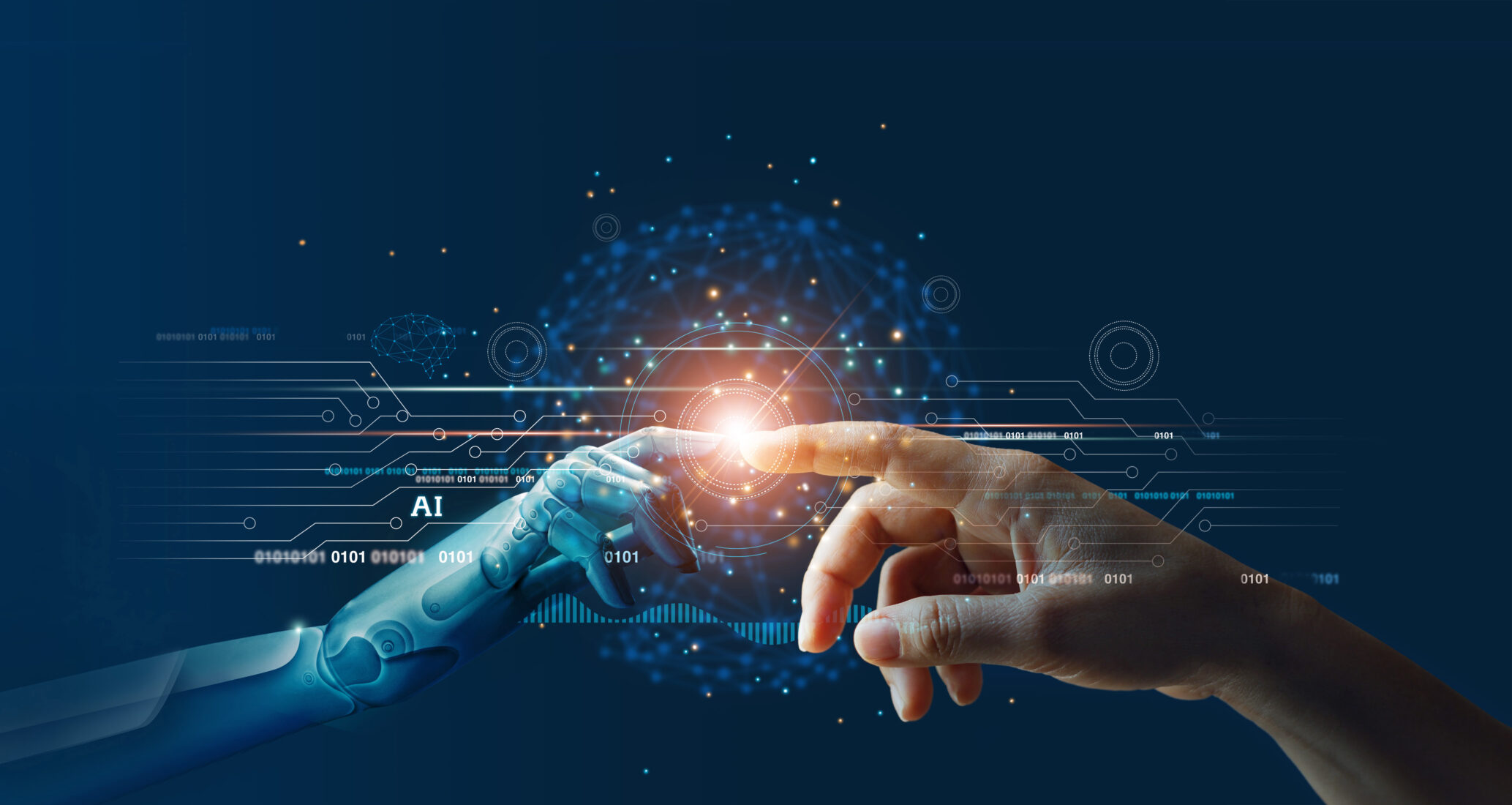
Lead or be led: America’s rush to achieve AI dominance is the new global Space Race
The worldwide fight to reign supreme in AI technology will likely be won by the United States, thanks to President Trump’s push toward innovation…but ethical concerns remain
Opinion-editorial by Summer Lane | July 24, 2025
In a 2024 report commissioned by the U.S. State Department, a disturbing future seems to lie ahead: a world dominated by artificial intelligence (AI), and tools that “pose an extinction-level threat to the human species.”
This report, synthesized by CNN and commissioned by the U.S. State Department, set tongues wagging last year over the very real risks the rapid development of AI tech poses to every level of national security, warfare, and privacy.
While AI is capable of incredibly positive feats, it’s the imposing what-ifs that plague the worriers and the critics. With a vision of Terminator-esque machine domination in the back of their minds, it’s easy to see why some oppose the integration of AI into every area of daily living, whether it’s cellphone usage, social media algorithms, or fast-food orders at McDonald’s.
With the Trump administration pushing hard to accelerate the development of AI and its rapid enmeshment into education, entertainment, and media, the superintelligence tool is impossible to escape, and it’s only getting stronger.
AI is the new ‘Space Race’
Decades ago, nations may have vied to put a man on the moon, but today, nations are scrambling to remain competitive in the realm of AI before they are militarily overtaken by behemoth programming capable of calculating exactly what it will take to win wars – and executing flawlessly on that assessment.
Beyond that, as AI becomes part of everyday life, it has begun to claim a spot of authority in culture. “AI, like people, can now speak with authority, so much that we are comforted in its accuracy,” said Ella Atkins, the Chair in Engineering at Virginia Tech, in 2023.
She continued, “How do we as a species distinguish fact from fiction when both are presented so similarly? And how do we, as a species, prevent even more polarization than what currently exists due to AI tools ‘giving users what they prefer’ politically, technologically, and in advertisements? AI as a propaganda engine is dangerous, and we are already beginning to witness its effects.”
AI poses a risk when it comes to weaponry, information, and even education.
For example, a recent executive order signed by President Trump, and spearheaded by U.S. Education Secretary Linda McMahon, aims to ensure that AI education is rapidly and robustly integrated into youth education in the United States.
“By fostering AI competency, we will equip our students with the foundational knowledge and skills necessary to adapt to and thrive in an increasingly digital society,” the order reads.
Indeed, the president is right in integrating training in AI as part of Americans’ education – but it introduces a chilling reality: AI is here to stay, whether we like it or not. The only way to stay ahead of the rest of the world is to embrace it, for better or for worse.
The ethical implications of AI
Unlike humans, AI is entirely subjective. Its experiences, values, moral compass, and thought processes are unoriginal. AI absorbs data and values from the world around it. It is soulless and emotionless, and yet humans are falling in line to form emotional bonds with AI programming.
For example, an article from The Guardian recently highlighted popular sites like Replika and Nomi – websites where users can become friends with AI companions, ranging from platonic friendships to passionate love affairs. These websites garner tens of millions of users.
Children are being exposed to AI at younger ages than ever before, and it is a valid concern to wonder whether these false, one-way relationships with computers are good for an impressionable and developing mind – especially when AI can easily become the purveyor of misinformation and deep fakes.
“This is especially concerning, as children are less able to fully understand the implications of AI technologies and often do not have the opportunities to communicate their opinions, nor the right advocates to support them,” UNICEF pointed out in an article on this very topic. “Children also often lack the resources to respond to instances of bias or to rectify any misconceptions in their data.”
Even worse, children are vulnerable to bullying and harassment schemes. To combat the use of fake AI images of real people being circulated online to cause pain or spread misinformation, President Donald Trump signed the “Take It Down Act” into law in late May.
The legislation makes it illegal to knowingly create and distribute intimate deep fake images – a much-needed safeguard, particularly for minors who have found themselves victimized by this harrowing technology at school.
And yet, concerns remain. Thousands of students in Middle School, High School, and College are using AI to write essays for them.
Lastly, AI is already demolishing entire industries, thus robbing hardworking humans of job opportunities.
“For instance, if drones and automated systems can oversee construction sites, or if AI-enhanced virtual reality can conduct site visits, what becomes of the human workforce traditionally involved in these tasks?” mused Myers-Lawson School of Construction Assistant Professor Ali Shojaei. “While AI promises efficiency and precision, it’s essential to consider the human element – the workers whose roles might become obsolete.”
Obsolete is an understatement. According to a report from Goldman Sachs, AI could replace up to 300 million full-time jobs.
Is this better for humanity? Is this helpful for Americans who are seeking to work hard for a better life?
Lead or be led
The gritty reality is that if the United States does not develop its AI programs, another country – like Russia or China – will fill that vacuum and dominate the space. That is a terrifying prospect, and so it is good and right for President Trump to focus on supercharging AI development in America.
On Wednesday, President Trump signed a new executive order to ensure AI models “prioritize truthfulness and ideological neutrality.” He also signed two more EOs on this issue aimed at accelerating AI innovation and infrastructure as part of his “Winning the AI Race: America’s AI Action Plan” strategy.
These steps to place guardrails on AI as it grows are important and much-needed. “This ensures that just like the modern economic order was built upon the US financial system, the future of AI will be built upon American AI models — and they won’t be woke,” said Turning Point USA President Charlie Kirk. “Difficult to overstate just how critical this could prove to the future of humanity.”
Soulless AI vs man
In the Hebrew Bible, the Scriptures speak of God making man “in His own image,” or Imago Dei (Gen. 1:27). This is certainly not a distinction that AI, despite its wizarding capabilities, can lay claim to – and as it becomes more advanced, it will be important to remember this.
AI is an inescapable technology, and maybe it’s a sign of the times. Like the ancient people of the Earth who labored to build a tower to the skies, perhaps humans today are striving too far ahead and reaching too high into the heavens.
With great power comes great destructive capabilities, and AI certainly comes with plenty of both. The key is to balance those two extremes, and so far, the Trump administration is doing a good job.
Photo: Adobe Stock
























